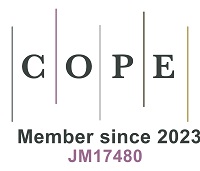Carbon Footprints (CF) is an international, gold open-access journal committed to advancing quantitative and qualitative understanding of: Greenhouse-gas and air-pollutant emissions (CO2, CH4, N2O, particulate matter, etc.); Low-carbon energy transitions and related technologies; Interactions between carbon, energy use, air pollutants, and socio-environmental systems. The journal illuminates the patterns, drivers, and mitigation pathways of carbon and pollutant footprints across natural, urban, industrial, and economic systems.
Contributions should elucidate fundamental processes or demonstrate applied innovations with broad relevance beyond case studies. The journal is structured around four core sectors:
1. Ecosystem Footprints
Land-use change effects on greenhouse gases and pollutants
AFOLU (Agriculture, Forestry, and Other Land Use) as sources and sinks
Coastal and marine carbon sequestration and ecosystem services
Water-resource management under carbon-neutral targets
2. Urban Systems
Urban carbon and pollutant accounting using big data and AI
Mobility and transport emissions
Built environment design for low-carbon resilience
Waste- and food-system footprints in cities
3. Industrial Systems
Life-cycle and process-level carbon accounting in manufacturing
Carbon capture, utilization, and storage (CCUS) technologies
Low-carbon process innovation across industrial chains
Circular-economy and recycling-industry footprints
4. Environmental & Resource Economics
Economic evaluation of carbon mitigation, energy conservation, and pollution control
Policy assessment: carbon pricing, subsidies, regulations
Interdisciplinary analyses in energy, transport, health, agriculture economics








